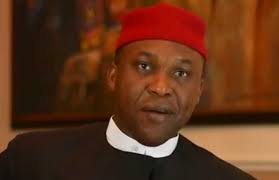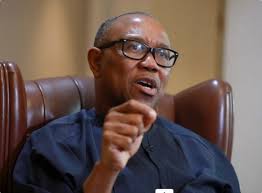
Implementation Of Oronsaye Report A Move In Right Direction, Says Chidoka
According to Osita Chidoka, a former minister of aviation, implementing the Steven Oronsaye report is a positive start.
President Bola Tinubu recently oversaw the execution of the report, which aimed to restructure Federal Government departments, agencies, commissions, and parastatals in light of Nigeria's faltering economy.
Chidoka, a prominent figure in the main opposition Peoples Democratic Party (PDP), praised the initiative to put the findings into action a few days after it happened.
That's a positive step in the right direction. He stated on Channels Television's Sunday Politics that the Oronsaye report was presented during Nigeria's economic recovery from the 2008 crisis.
Concerns about employment losses have arisen after Tinubu decided to implement the Oronsaye report.
Chidoka is concerned about those who would be impacted by the report's implementation, notwithstanding the Federal Government's assurance that no jobs will be lost.
What are we actually getting rid of? What are the figures? According to the PDP leader, this is the reason why certain governments have institutes and think tanks that examine your policies and provide statistics based on evidence. You assert that there would be no employment losses. What makes that possible?
"We have to consider this if people must leave," he remarked. The crucial question is: how much will we be able to save using this process? Now let's add some figures to it. When we enter those figures, let's additionally enter the numbers of the people we are moving out of these jobs. What are we going to do with them as we transition them out in the middle of an economic crisis?”
Human rights attorney Femi Falana has expressed doubts about the Federal Government's decision to push for the implementation of the Oronsaye report. According to him, the report is out of date and wouldn't lower governance costs.
In contrast to what is believed in official circles, the Senior Advocate of Nigeria (SAN) contended that the report will not "substantially reduce the enormous costs of governance in the country as it does not reflect the current situation in the public service."
More ministries, departments, and agencies have been established by the federal government since the Goodluck Jonathan administration released a White Paper on the Steve Oronsaye Report in 2014.
"The number of ministries, departments, and agencies has expanded to 1316, despite the report's recommendation to reduce 263 agencies to 151. Even the current administration has added additional agencies and multiplied the number of ministries. The Steve Oronsaye Report is totally out of date in that regard, he claimed.
Citing similar views to Falana's, the House of Representatives has also urged the government to examine the report before implementing its recommendations.
The lawmakers urged Tinubu to "conduct a thorough review of the Goni Aji Report, which reviewed the Orosanye Report, the President Jonathan administration's White Paper, the Ama Pepple White Paper, and the Ebele Okeke White Paper in line with current realities while considering implementable alternatives that are in tune with current realities,
The lawmakers urged Tinubu to "consider implementable alternatives that are in tune with current realities, and which at the same time would have minimal unintended consequences, impacts, implications and outcomes" in addition to "comprehensively reviewing the 2012 Orosanye Report, the Goni Aji Report which reviewed Orosanye Report, the White Paper released by the President Jonathan administration, the Ama Pepple White Paper, and the Ebele Okeke White Paper in line with current realities."





